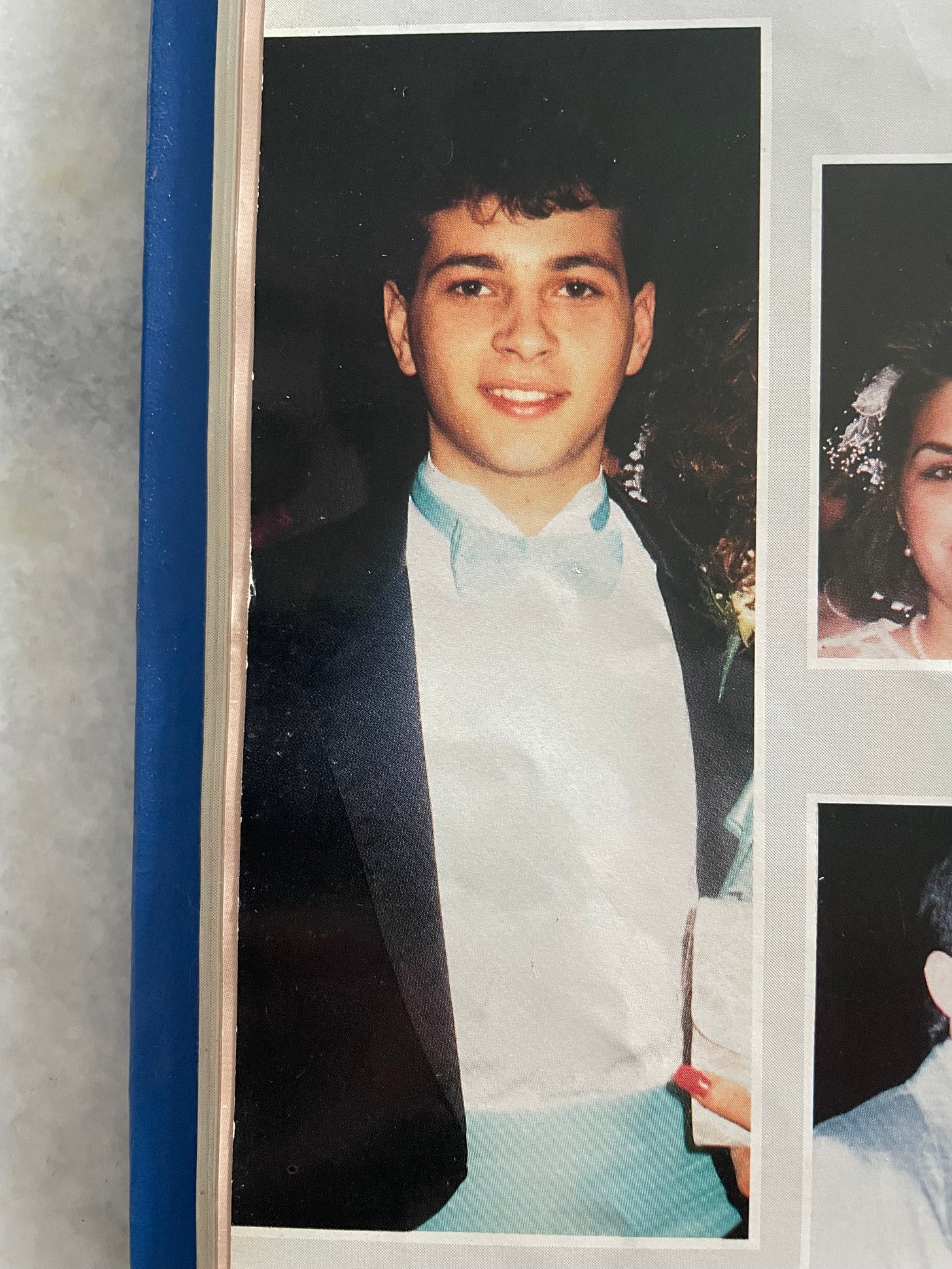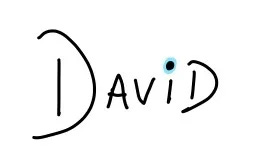It’s graduation season. Know any young “underachievers”? Please consider passing this along, from one underachiever to another:
My youngest son graduates from college this week, which has me thinking about my path as a young man. I often find myself describing the younger version of me as an underachiever. I don’t do this in a self-deprecating way or attempt to make any statement of it. It simply is what it is. If you were to talk to high school classmates of mine, some may have described me as a class clown, others may remember me as the school “Picasso,” and others may not have thought of me much at all. I can’t remember my SAT score, but I remember feeling unprepared to take it. While many of my friends had plans to go “away” to college, my only plans included going to the local Community College. I didn’t know what I wanted to study, there was no scholarship for me, and I had just broken up with my first serious girlfriend, leading to a newfound experience of being the owner of a broken heart. As far as young men go, I wasn’t where I wanted to be. I don’t think I even knew where that was.
I was a classic young underachiever.
Here’s the thing, though… it didn’t last very long. This past Mother’s Day, I recalled how I came home late one evening from my part-time job and told my mother that I wanted to attend Pratt Institute after getting an acceptance notice there. I’ll never forget her response:
“If that’s what you think is right for you, I support it.”
Finally, after 20 years of underachieving, I had a mission: attend a world-class design school and attempt to make something of myself. I’ve always told my sons to surround themselves with people who are better than they are. At Pratt, I was surrounded by much smarter and more talented people than I. From architects to graphic designers and even fine artists… I was outclassed.
But I was not outworked.
At Pratt, I discovered my competitive side. One of my favorite parts of the experience was “the critique,” where we put our work on the wall to be critiqued by professors and peers.
I loved it.
I was ok with my work being critiqued, and I lived for the nuggets of praise. Likewise, I appreciated the opportunity to critique the work of my peers constructively. Little did I know that my college experience taught me how to be a creative director—something I did formally and informally for over half my career. Pratt was the beginning to the end of my years of underachieving. Looking back, I’m confident I lived my career life as an overachiever, despite my origin story.
Achieving Comes Easier Than We Think
“David, why are you so driven??”
One of my early bosses asked me this question, likely out of frustration and perhaps some confusion. For the next 20 years of my life, I was making up for the “lost time” of being an underachiever, and this was the simple answer, though I didn’t realize it then. The truth is that after college, I found success almost on day one. I started working weeks after graduating, making an excellent salary, and thanks to my youth, my curiosity, and that drive inspired by my former underachieving status, I kept working my way up. I was a young team leader by my late twenties, and by my late thirties, I started making serious money for my age as an executive. But it wasn’t only money… by my late thirties and early forties. I was also doing well financially, traveling the world, and giving speeches to highly educated and engaged audiences. I remember getting invited to speak at Google during the early social media years, but turning it down because I had a parental commitment.
Still, the invite alone was a badge of honor. This underachiever had fully metamorphosed into an overachiever. I even joined a firm filled with thousands of other overachievers, or as I liked to think of them, “Type A” personalities.
I thought they were so smart, and they thought I was so smart. We were all in love with our shared interests in intellectual curiosity and our ability to advise the C-suite.
Achieving had come much more naturally to me than that eighteen-year-old version of myself could have ever envisioned. It was a driving force in my life, perhaps becoming THE driving force in many ways. Achieving filled the holes for me that all of us have deep within ourselves. While I was busy achieving, that became a convenient distraction from the deeper matters of life.
However, becoming a high achiever attracts fleeting company. This is the cliche of Hollywood folklore, but it’s grounded in truth. Success attracts success, but it doesn’t necessarily attract sustainable substance. Many of my fellow overachievers are still out there, chasing achievement and all that comes with it.
It’s a choice. And we live with the choices we make.
Investing vs. Achieving
Here’s the advice I would give the two versions of my younger self, if I could travel back in time and put my arm over my shoulder as a wise friend who has learned a thing or two about life and achievement... To the eighteen-year-old version of myself, I’d offer encouragement, grace, and most importantly, stress how critical it is to give myself the time and space to get to know myself. What I needed to feel at that point was that I would figure it out, and that I’d have plenty of opportunities to achieve, both in my professional and personal life. With the benefit of hindsight, I can reflect on how I probably rushed into both and would have benefited from a better understanding of my motivations, the world, and the things that make life worth living.
To the late twenties/early thirties version of myself, I would have whispered in my ear, “Don’t achieve… but invest”. Investing in anything takes foresight, patience, courage, and commitment. High on the list of where I wish I invested more was in the area of relationships. But I was so busy being rewarded for my achievements. I’ll never forget when I got my first promotion: it was how I measured my official transformation from being an underachiever in my past life to settling into an overachiever in my new career life.
Achieving is a hell of a drug.
As with most drugs, it feels good until it doesn’t. Investments, on the other hand, pay off over time. Wise financial investments build wealth. Investments in our health add years and quality to our lives. Investments in relationships lead to a life filled with support systems and companionship. Investments like these build the lasting, rich lives we yearn for instead of the veneer of success that achievement paints.
It is better to invest with intent than to achieve through aspiration. If we don’t fully understand why we are working so hard to achieve, we’ll miss the opportunity to build long-lasting value through investing.
You’ll never regret investing in yourself.
Today, my younger son graduates from UTSA. Like my younger self, he took a few years to figure out his professional path. Also, like younger me, he has already found employment in his field, when it’s challenging for undergrads to land that first job. Unlike me, he has a father who has spent over thirty years navigating the corporate world, overachieving during much of that time. But it’s what I learned in the second half of my career to date that I’m trying to pass down to him. Invest in relationships. Shortly after my son accepted his job offer, I encouraged him to send thank-you notes to everyone who had given him time and opportunity and helped him achieve. He did just that, and I know he’s already on his way to an investment-filled future…
Took you up on the advice to write thank you cards for the people where I interned! Got them gift cards too.
That’s how I’ll end this—with a call to investment to all the underachievers reading these words. Don’t achieve, but rather invest. And the first investment needs to be in yourself, to get answers to the questions that begin to give you clues about what does or doesn’t drive you, and most importantly, why.
Visually yours,








David, that is such great advice for young people. Wisdom only comes with experience, and your essay demonstrates you have lots of both to share.
As for surrounding yourself with people who are smarter than you -- that's one reason I follow and subscribe to you, and have for years to one degree or another.